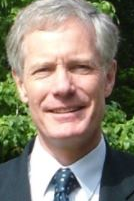
Philip Andrews-Speed
Oxford Institute for Energy Studies, UKDr Andrews-Speed is a Senior Principal Fellow at the Energy Studies Institute, National University of Singapore. He has nearly 40 years in the field of energy and resources, starting his career as a mineral and oil exploration geologist before moving into the field of energy and resource governance. Until 2010, he was Professor of Energy Policy at the University of Dundee and Director of the Centre of Energy, Petroleum and Mineral Law and Policy. His main research interest has been the political economy of the low-carbon energy transition. China has been a particular focus for his research, but in recent years he has been more deeply engaged with energy challenges in Southeast Asia. His latest book China as a Global Clean Energy Champion: Lifting the Veil appeared early in 2019.

Daniel del Barrio Alvare
University of Tokyo, JapanDaniel del Barrio Alvarez is an assistant professor at the International Project Laboratory of Civil Engineering at The University of Tokyo. His research focuses on sustainability transitions and social innovation in the energy sector. He studies regional power connectivity in the Greater Mekong Subregion, particularly on drivers and barriers for institutional development, stakeholders’ perspectives, and the role of international partners as honest brokers. He has conducted research on the potential contribution of renewable energy to the sustainable future in Myanmar and on the interlinkage between energy and the post-conflict in Colombia. He is currently also analyzing the emergence and development of local energy governance structures, particularly in Japan and Spain.
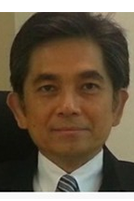
Weerawat Chantanakome
Ministry of Energy, ThailandDr. Weerawat Chantanakome is currently the Councilor and Senior Policy Advisor to the Ministry of Energy, the Royal Government of Thailand. Before joining the Ministry, Dr. Weerawat was the Chief Executive Officer (CEO) of the Brunei National Energy Research Institute (BNERI) established in 2011. Prior to joining BNERI, he was the Senior Team Leader of the Asia-Pacific Energy Research Centre (APERC) in Tokyo (2009-2011) working with 21 Member Economies. From 2004-2009, Dr. Weerawat was the Executive Director of the ASEAN Centre for Energy (ACE), the ASEAN Secretariat based in Jakarta serving 10 ASEAN Member States. Dr. Weerawat holds M.S. (Industrial Engineering) from Ohio University, D.E.A. (Energy Economic) from University of Paris 2 (Sorbonne), and Ph.D. (Energy Policy & Planning) from University of Waterloo, Canada. Dr. Weerawat has over 25 years of experience in program and project development both locally and internationally for multi-disciplinary projects with UN, World Bank, IRENA, IEA, EU, ADB, ASEAN, APEC, EAS, ACE, USAID, ERIA.
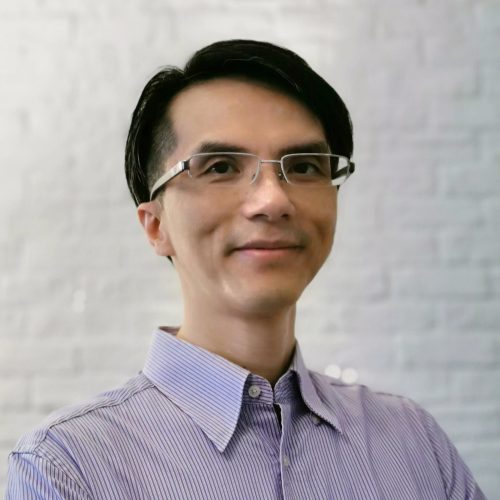
James Tsun Se Cheong
Hang Seng University of Hong Kong, Hong KongDr. Cheong is an Associate Professor at the Hang Seng University of Hong Kong and an Adjunct Associate Professor at the University of Technology Sydney. He received his PhD in Economics from the University of Western Australia where he also worked as a Postdoctoral Research Fellow in economic modelling. He also holds a Master of Applied Finance from Western Sydney University, a Master’s degree in International Relations from Griffith University and a Bachelor’s degree (Honours) in Engineering from the Hong Kong Polytechnic University. He has conducted research in many different areas of economics and finance. The findings of his research studies have been published in many prestigious journals. He is the Associate Editor of the Journal of the Asia-Pacific Economy, the Treasurer and Founding Member of the International Society for Energy Transition Studies (ISETS), and a member of the Executive Committee of the Chinese Economics Society Australia. He has extensive knowledge in Computable General Equilibrium (CGE) analysis and applied economic modelling (GEMPACK ORANI-G, RunGDYN, RunGTAP, TERM). Moreover, he has comprehensive knowledge of state-of-the-art analytical techniques such as machine learning, artificial neural network analysis, deep learning, AI image and large language models (LLMs). He has provided professional training in economics to various professional associations and corporations in Hong Kong and has participated in many consultancy projects and TV interviews.

Quentin Grafton
Australian National University, AustraliaQuentin Grafton is Professor of Economics and Chairholder UNESCO Chair in Water Economics and Transboundary Water Governance. He is an Australian Laureate Fellow, a Fellow of the Academy of Social Sciences in Australia, a former President (2017-18) and also Distinguished Fellow of the Australasian Agricultural and Resource Economics Society (AARES). He has published more than 160 scholarly (including in journals like Science), 46 chapters in books and 17 edited or co-authored books (in Oxford University Press and Cambridge University Press).

Shabbir H. Gheewala
Joint Graduate School of Energy and Environment (JGSEE),ThailandShabbir H. Gheewala is a professor at the Joint Graduate School of Energy and Environment (JGSEE), Thailand where he teaches Life Cycle Assessment and has led the Life Cycle Sustainability Assessment Lab for about 20 years. He also holds an adjunct professorship at the University of North Carolina Chapel Hill, USA, a Distinguished Adjunct Professor position at the Asian Institute of Technology and an Honorary Professorship at the Prince of Songkla University, Thailand. His research focuses on sustainability assessment of energy systems; sustainability indicators; and certification issues in biofuels and the agro-industry. He is a national expert on life cycle inventory as well as product carbon footprinting and water footprinting in Thailand. Shabbir mentors the research network on sustainability assessment and policy for food, fuel and climate change in Thailand.
With over 250 papers in peer reviewed journals, he is the Editor-in-Chief of the Journal of Sustainable Energy and Environment and also serves on the editorial boards of the International Journal of Life Cycle Assessment, Sustainable Production and Consumption, and the Journal of Cleaner Production.
Along with graduate teaching and research, Shabbir has worked extensively with industry in Thailand providing training and consultancy to scores of companies with aspirations towards improvements in sustainability. He also sits on several national committees providing technical support to policy-making bodies in Thailand. He has conducted national projects on sustainability and competitiveness for several critical supply chains in Thailand with the support of agencies such as the National Science and Technology Development Agency (Ministry of Science and Technology), Agricultural Research and Development Agency, Department of Alternative Energy Development and Efficiency (Ministry of Energy) and the National Research Council of Thailand.

Farhad Taghizadeh-Hesary
Tokai University, JapanDr Farhad Taghizadeh-Hesary is an associate professor of economics at Tokai University in Japan, and a visiting professor at Keio University, Japan. He obtained a PhD in energy economics from Keio University in 2015 with a scholarship from the government of Japan (MEXT). He taught as an assistant professor at Keio following the completion of his PhD until March 2018 and as an assistant professor at the faculty of political science and economics of Waseda University 2018-2020. He is a grantee of the Excellent Young Researcher (LEADER) status from the Ministry of Education, Culture, Sports, Science, and Technology (MEXT) of Japan with a 5 years’ competitive research grant (2019-2024). Presently he is also a visiting professor at Chiang Mai University (Thailand) and a distinguished research fellow and external scientific member at the University of Economics Ho Chi Minh City (Vietnam). Dr Taghizadeh-Hesary has published on a wide range of topics, including energy economics, energy policy, green finance, small and medium-sized enterprises finance, monetary policy, banking; Asian and Japanese economy. Currently, he is serving as Associate Editor of Finance Research Letters (SSCI), Associate Editor of Singapore Economic Review (SSCI), Associate Editor of Global Finance Journal (ESCI, Scopus) and Editor of Cogent Business & Management (Taylor & Francis, Scopus).

Llewelyn Hughes
Australian National University, AustraliaDr. Hughes is an Associate Professor at the Crawford School of Public Policy, Australian National University (ANU) and senior consultant in energy & environment for GR Group, a government affairs and public policy consultancy headquartered in Tokyo. His academic work is on how public policies affect, and are affected by, the low-carbon energy transition, with a particular focus on the Asia-Pacific region. An ongoing project examines how the rise of Global Value Chains affect the ability of governments to promote green growth industries. Before joining the ANU Dr. Hughes worked at the Elliott School of International Affairs at George Washington University (GWU) in Washington DC, and before that the Consortium for Energy Policy Research at the John F. Kennedy School of Government, Harvard University. He has also been a visiting fellow at the Institute of Advanced Sustainability Studies in Potsdam, the Environmental Policy Research Centre (Forschungszentrums für Umweltpolitik) at Freie Universität, the Centre of Geopolitics of Energy and Raw Materials (CGEMP) at Université Paris Dauphine, Tokyo Foundation, Japan Business Federation (Keidanren), and the Japan Institute for Energy Economics (IEEJ).

Geoff James
AustraliaGeoff’s research and consulting interests included demand management, integrating renewable generation, distribution network evolution, transmission planning, energy market development, and energy storage technology and applications. In 2013 Geoff joined Reposit Power to help commercialise residential energy storage in the Australian market. Geoff received his PhD in Physics in 1991 contributing to technology for radioastronomy at the University of Tasmania. He then joined CSIRO and until 2002 worked on research and commercial projects in radio antenna engineering. Following a period working on distributed systems with embedded intelligence, Geoff began to apply these ideas to distributed energy

Qiang Ji
Chinese Academy of Sciences,ChinaDr. Ji’s research interest covers broad areas of big data and energy finance, energy economics and energy strategy management, forecast modelling and risk management and financial econometrics. He is an Associate Professor in the Chinese Academy of Sciences (CAS). He has published more than 100 articles in peer-reviewed journals in energy, finance and economics. He is the principle investigator of over ten grants from the National Natural Science Foundation of China (NSFC) and CAS. He is an associate editor for International Review of Financial Analysis, the co-founder of China Energy Finance Network, and the Council Member of Chinese Society of Low Carbon Development Management and Chinese Society of Energy Resources Systems Engineering. He received his PhD in Management Science and Engineering from CAS in 2011.

Ken Koyama
Institute of Energy Economics, JapanDr. Koayam is Managing Director, Chief Economist, Strategy Research Unit, Institute of Energy Economics, Japan (IEEJ). His fields of Expertise: Economic and Political Analysis of the World Oil Market / Economic and Political Analysis of the World Natural Gas Market / Energy Security and Geopolitics of Energy
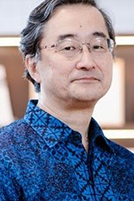
Fukunari Kimura
ERIAProfessor Kimura is Chief Economist of Economic Research Institute for ASEAN and East Asia. He then received Master of Science and PhD titles from the Department of Economics, University of Wisconsin-Madison in 1990 and 1991, respectively. He worked for the Department of Economics, State University of New York at Albany as Assistant Professor in 1991-1994, and in the Faculty of Economics of Keio University as Associate Professor in 1994-2000. In particular, he has recently been active in writing academic/semi-academic books and articles on international production networks and economic integration in East Asia.

James Laurenceson
University of Technology Sydney, AustraliaProfessor James Laurenceson is Director of the Australia-China Relations Institute at UTS. He has previously held appointments at the University of Queensland (Australia), Shandong University (China) and Shimonoseki City University (Japan). He was President of the Chinese Economics Society of Australia from 2012-2014. His academic research has been published in leading scholarly journals including China Economic Review and China Economic Journal. Professor Laurenceson also provides regular commentary on contemporary developments in China’s economy and the Australia-China economic relationship. His opinion pieces have appeared in Australian Financial Review, The Australian, Sydney Morning Herald, South China Morning Post, amongst many others.

Yanfei Li
Hunan University of Technology and Business, China/Economic Research Institute for ASEAN and East Asia (ERIA)Dr. Yanfei Li is an Associate Professor with Hunan University of Technology and Business. He is also currently a Research Fellow with the Economic Research Institute for ASEAN and East Asia (ERIA), an international economic policy think tank. He specializes in energy markets, energy policy, and economics of technological change, serving the interests of both academic and public sectors. His academic research appears on top energy and economics journals such as Energy Economics, Energy Policy, and Technological Forecasting and Social Changes. He also contributes opinion articles to public media such as South China Morning Post, the Diplomat, China Daily, the Nikkei Asian Review, and the ASEAN Post. He acquired PhD in Economics from Nanyang Technological University in Singapore and Bachelor’s degree in Economics from Peking University in Beijing. LinkedIn: https://www.linkedin.com/in/yanfei-li-464abb1b/

Tatiana Mitrova
Columbia University, USAScientific advisor at the Energy Research Institute of the Russian Academy of Sciences (ERI RAS), Research Scholar at the Center on Global Energy Policy at Columbia University, Associate Research Fellow at Russia/NIS Center in Institut Francais des Relations Internationales (IFRI), Distinguished Research Fellow at Institute of Energy Economics, Japan (IEEJ).

Hari MP
the corporate strategy team at Emera Inc And ESI NUS ,CanadaHari works with the corporate strategy team at Emera Inc, a large North American integrated utility. He is an expert in quantitative modelling of energy markets and policies. His research interests include transition of North American electricity markets, global LNG and pricing and trade of energy commodities. He was working as an energy markets consultant with a Hong Kong based strategy consultancy. He also worked as an energy economist (Research Fellow) with the Energy Studies Institute, National University of Singapore (ESI NUS). During time with ESI, he has published on the topics of LNG pricing and trade , gas makte liberalization , Cost Benefit Analysis , integration of renewables and battery storage. Hari holds a Master of Science in Financial Engineering (First Class) from NUS, MBA (General Management) from FMS, Delhi and a Bachelor of Technology in Electronics and Communication Engineering (with Distinction) from National Institute of Technology, Calicut.

Victor Nian
Centre for Strategic Energy and Resources, SingaporeDr. Victor Nian is CEO of Centre for Strategic Energy and Resources . Untill recently, he was a Senior Research Fellow of the Energy Studies Institute (ESI), National University of Singapore and Adjunct Professor at Tianjin University of Commerce. Dr. Nian is also the Founding President of the Academy of Applied Systems Science and the Executive Director of UNiLAB on Integrated Systems Analysis Tools. Both the Academy and UNiLAB are established in Singapore with more than 15 partnering organisations worldwide. Dr. Nian holds a PhD in Mechanical Engineering and Bachelor in Electrical Engineering with a minor in Management of Technology, all from NUS. Dr. Nian has more than 10 years’ experience in energy policy research especially in industrial policy and nuclear energy policy. Dr. Nian has also developed various energy analysis tools and energy systems models for the industry, and government and academic organisations. Prior to joining the ESI, Dr. Nian has worked in a range of businesses including software development, ergonomics consultancy, patenting and technology transfer in Nanyang Technological University, and research and development engineer in Toshiba.

Jinho Park
Korea Energy Economics Institute, South KoeraDr. Jin Ho Park is a Research Fellow at Korea Energy Economics Institute (KEEI) and Head of Gas Policy Research Team of KEEI. He has published research papers regarding LNG pricing, LNG Market trends, Natural gas trading hubs in Asia, and LPG market in S. Korea. He has also focused on the research regarding gas market deregulation in S. Korea. He received Ph. D. in Economics at University of Missouri-Columbia in the United States.
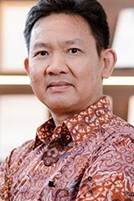
Han Phoumin
Economic Research Institute for ASEAN and East Asia (ERIA)Dr. Phoumin is Energy Econoimst at Economic Research Institute for ASEAN and East Asia (ERIA). He has more than 20 years of professional experience working at various international and inter-governmental organisations and multi-disciplinary research consortiums related to energy market and technologies, environment, integrated water resource management, governance, and economic development in the region of ASEAN and East Asia. He specialised in economic development and policy and applied econometrics. Much of his career in the past 12 years revolved around power sectors, especially with sustainable hydropower development, renewable energy policy research (i.e., biomass power generation competitiveness studies, solar and wind), energy efficiency and conservation, clean coal technology, energy security, and energy demand and supply forecasting. He has been serving as an expert for APEC on energy security for oil and gas emergency responses since 2013 until now. He is also one of the peer review experts for Peru’s energy subsidy removal commissioned by USAID in 2015. He also has led a number of projects in the EAS region related to energy policy and planning, and also contributed articles and special issues for academic journals.

Bertrand Rioux
Two Ravens Consulting, Canada; Formerly KAPSAR, Saudi ArabiaBertrand Rioux is the director of Two Ravens Energy & Climate Consulting, and formerly a Research Fellow at KAPSARC, an independent energy economics & policy think tank in Saudi Arabia. His work focuses on climate change mitigation strategies for the energy sector with a focus on technology for emissions allocation agreements, verification tools and carbon footprint tracking. He holds advanced degrees in Atmospheric Physics & Chemistry, Marine Science & Engineering, and Blockchain & Digital Currency.
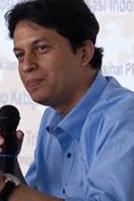
Maxensius SAMBODO
Indonesian Institute of Sciences (LIPI), IndonesiaMaxensius Tri Sambodo is a senior researcher at the Indonesian Institute of Sciences (LIPI) Economic Research Center. He is also a visiting fellow alumnus from the Institute of Southeast Asian Studies (ISEAS), Singapore. His research interests are on economic development, energy, environment, and natural resources. He obtained a bachelor’s degree in Economics from Padjadjaran University, Indonesia, his Masters in International and Development Economic from the Australian National University, Australia, and his Ph.D. in Public Policy from the National Graduate Institute for Policy Studies (GRIPS), Japan. His latest book publication appeared in: From Darkness to Light: Energy Security Assessment in Indonesia’s Power Sector published by ISEAS Yusof Ishak Institute, Singapore 2016; and for journal appeared in Energy Policy 2019, 123(132):113-121, with co-authors with Rio Novandra, on the title the state of energy poverty in Indonesia and its impact on welfare. https://link.springer.com/book/10.1007/978-981-16-3611-0

Vinod Sharma
IGIDR, IndiaProf. Vinod Kumar Sharma is an Environmental Engineer with a Ph.D. degree from Indian Institute of Technology Bombay and has a Professional Career of over 34 years. His Experience in Academic Administration duties includes, Dean at IGIDR; HOD at SNDT Women’s University, Member, BOM, IGIDR and membership of several administrative committees. International experience that includes his work at the World Bank, USA and at NIES, the Environment Ministry of Japan, Tsukuba, Japan and collaborations in several other countries.Completed research projects for international and Indian organizations including the UNEP, UNDP, UNCTAD, UN-ESCAP, CREED, IIED, the World Bank, ICEF, SICI, JBIC, ADB, APO, AIST, JETRO, ERIA, IDE; Many Indian Ministries including Environment, Energy, Planning Commission; Corporate Sector and NGOs. He was invited as Chair, Keynote Speaker, Panel Member in academic events in India and abroad. He has more than 150 publications in peer reviewed journals, newspapers and magazines, books and policy reports. His editorships include international journals published from Germany, The Netherlands, USA and Japan. He contributed to policy making at the city, state, national and international levels through policy reports on Renewable Energy, Air Pollution, Maharashtra State Development Report; State of Environment Report. Prof. Sharma’s broad area of research is “Sustainable Development” with focus on Energy and Environment. His initiatives include publication of IJSI and Savitarka; d organization of the ISSF events; Indian Society for Life Cycle Assessment (ISLCA), Membership of UNEP’s International Life Cycle Board (ILCB).
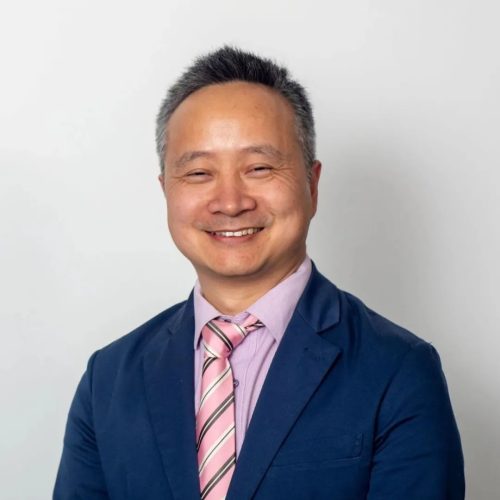
Xunpeng (Roc) Shi
University of Technology Sydney, Australia/President of ISETSXunpeng (Roc) Shi is a Professor of Energy and Environmental Economics and Sustainability and Research Principal at the Australia-China Relations Institute, UTS; President of the International Society for Energy Transition Studies (ISETS); and a Council Member (President, 2016-2018) of the Chinese Economics Society Australia (CESA). His research interests cover the full spectrum of energy, climate change and other environmental issues in economics, policy, and sustainable development, with regional focuses on Australia, China, ASEAN , and Northeast Asia. He was listed in 2020 as Australia’s leading researcher in the field of Environmental Law and Policy, the top 2% of the world’s top scientists in the energy field, and the top 2% of authors in the world’s largest database of economists (RePEc). He serves as a Specialty Chief Editor of Frontiers in Environmental Economics, a co-Editor of Journal of the Asia Pacific Economy (SSCI), an associate editor of China and World Economy (SSCI), Energy Economics (SSCI, A*), Energy Engineering (EI), Journal of Environmental Economics (in Chinese), and other editorial roles for more than 10 journals. He has worked in the energy sector for more than 25 years in roles spanning industry, government and research institutes in Australia, Brunei, China, Indonesia, Singapore, and an international organisation. He has advised international organisations, including ADB, and the International Group of LNG Importers (GIIGNL). Currently, he is an advisor to Global Gas Center (GGC), APEC Sustainable Energy Center (APSEC), and UN ESCAP and frequently participates in the United Nations and other international policy debates. Incredibly driven by his work, Roc’s ultimate aim is to promote the cost-efficient transition to a low carbon future while protecting vulnerable stakeholders through research, service and global leadership.
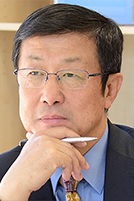
Xiansheng Sun
Fromer Secretary General of International Energy ForumDr Sun Xiansheng took up post as the International Energy Forum (IEF) Secretary General on 1 August 2016. Prior to his election Dr Sun was the President of China National Petroleum Corporation’s (CNPC) Economics and Technology Research Institute (ETRI) where he lead a team of over 370 staff members. With more than 30 years of experience in the oil & gas industry, Dr Sun has accumulated practical industry experience in oil & gas production, trading and pipeline construction. In previous roles he has served as Director of the Legal & Contract Department of CNPC International Cooperation Bureau, Vice President of CNODC (China National Exploration and Development Company), Chairman of JOC and President of Greater Nile Petroleum Operating Company CNPC and also President of PetroDar company. Dr Sun also served as Chairman of the CNPC subsidiary companies in Azerbaijan and Uzbekistan, and as Chairman and Chief Negotiator of China Kazakhstan Oil Pipeline Co. Moreover, as a representative of the Chinese government, Dr Sun participated in the dialogue with OPEC and worked as chief coordinator in setting and revising production sharing contracts both for crude oil and unconventional gas for CNPC. Dr Sun holds an LLM and Ph.D from the University of Dundee, UK.
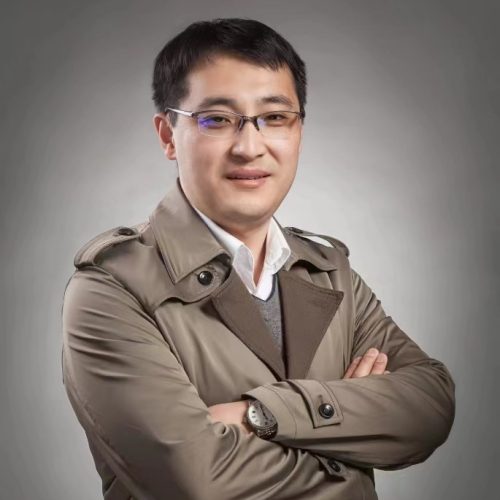
Yongping Sun
Huazhong University of Science and Technology, ChinaYongping Sun is a professor at the School of Economics and a Vice Dean of the Institute of State Governance, Huazhong University of Science and Technology. He is Co-director of the Collaborative Innovation Center for Carbon Emissions Trading Co-constructed by the Province and Ministry, chief expert of Major Projects of the National Social Science Fund, and Vice President of the Council of the International Society for Energy Transition Studies. He serves as an Executive Deputy Editor of Journal of Environmental Economics. His research focuses on global climate governance and emission trading system. He is renowned for his research on China’s emission trading system. In recent years, he has published more than 80 academic papers in top journals such as Science, Energy Economics, Applied Energy, Energy Policy, and other journals.
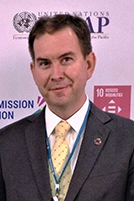
Michael Williamson
ESCAP, United NationsMichael Williamson is Section Chief in the Energy Division of the United Nations Economic and Social Commission for Asia and the Pacific (ESCAP). Michael works on regional cooperation for sustainable energy across ESCAP’s 53 member countries, spanning intergovernmental dialogue, technical assistance and research. Prior to this, Michael was the acting Director of ESCAP’s Subregional Office for South and South West Asia overseeing 10 countries of South and South West Asia. He was previously Chief of Staff and Senior Adviser to the Executive Secretary of ESCAP. He began his UN career in 2013 as the Head of the Asian and Pacific Centre for Transfer of Technology, ESCAP’s regional institution based in India.
Michael’s experience over the last 20 years covers the private sector, government and international organisations with a focus on sustainable development, energy, technology and climate change. He worked for Australian governments at state and federal level in climate change, sustainability and energy policy and in humanitarian assignments with the International Committee of the Red Cross.
Michael holds a Master of Science in Renewable Energy Technology from Loughborough University, UK, an honours degree in Civil Engineering from Monash University, Australia and a post graduate diploma in management from the Australian Institute of Management. He is a graduate of the UN leadership course at the United Nations Staff College.
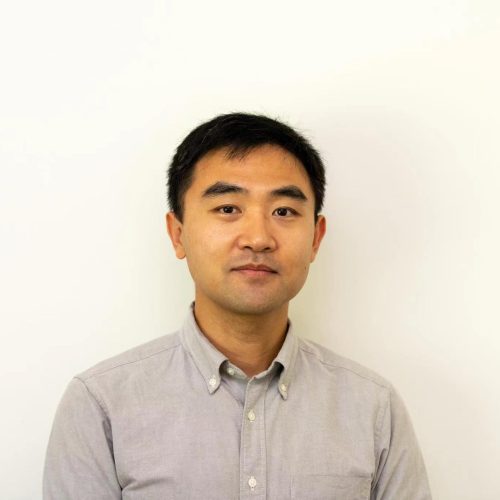
Muyi Yang
Asia Society Policy Institute (ASPI), AustraliaDr. Muyi Yang currently holds the position of Associate Director of Clean Energy at the Asia Society Policy Institute (ASPI), where he is responsible for leveraging ASPI’s analytical work and convening capacity to promote the transition towards a cleaner and more sustainable energy future in Asia.
Prior to joining ASPI, he worked at the University of Technology Sydney from 2016 to 2022, actively engaging in teaching, research, and consulting on diverse energy policy themes including electricity market reform, renewable energy, coal power phasedown, transport electrification, energy governance, and political economy. His main areas of focus are China, Southeast Asia, and Oceania. Furthermore, he worked at Ember, a global energy and climate think tanks between 2020 and 2023, and at NSW Trade and Investment from 2014 to 2015.
Muyi holds a PhD and a Master’s degree in energy policy, as well as a Bachelor’s degree in Applied Science.
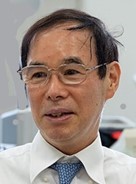
Naoyuki Yoshino
Keio University, JapanDr. Naoyuki Yoshino is Professor Emeritus at Keio University, Tokyo, Japan. From 2014 to 2020, he was Dean & CEO of the Asian Development Bank Institute (ADBI). He obtained his Ph.D. from Johns Hopkins University (United States) where his thesis supervisor was Sir Alan Walters, economic adviser to former British Prime Minister Margaret Thatcher. Dr. Yoshino has been a visiting scholar at the MIT (United States) and a visiting professor at various universities including the University of New South Wales (Australia), Fondation Nationale des Sciences Politiques (France), the University of Gothenburg (Sweden) and Martin Luther University of Halle-Wittenberg (Germany). He has also been an assistant professor at the State University of New York at Buffalo (1979-1981), an associate Professor at GRIPS (National Graduate Institute for Policy Studies, 1982-1990) and an economics professor at Keio University (1991-2014). Dr. Yoshino’s professional career includes membership in numerous government committees. He was named Director of the Japan Financial Services Agency’s (FSA) Financial Research Center (FSA Institute) in 2020. He was appointed as Chair of the Financial Planning Standards Board in 2007. He served as Chairperson of the Japanese Ministry of Finance’s Council on Foreign Exchange as well as its Fiscal System Council (Fiscal Investment and Loan Program Section). Additionally, he was a Board Member of the Deposit Insurance Corporation of Japan and President of the Financial System Council of the Government of Japan. He was nominated for inclusion in Who’s Who in the World for 2009, 2013, and 2020. He was awarded honorary doctorates from the University of Gothenburg (Sweden) in 2004, Martin Luther University of Halle-Wittenberg (Germany) in 2013 and received the Fukuzawa Award in 2013 for his contribution to research on economic policy. He served as the T20 Japan, Lead-chair during Japan’s Presidency of the G20-2019 meeting and the Lead Co-chair of the T20 Infrastructure Financing Task Force. He handed over T20 presidency of Japan to Saudi Arabia’s presidency in 2020 and Italy’s Presidency in 2021. He received the International Green Finance Lifetime Achievement Scientific Award from the Central Bank of Hungary which was held at the Planet Budapest 2021 sustainability EXPO summit. He is a member of Economic Advisory Group (EAG) of Republic of Palau in 2022-2024.
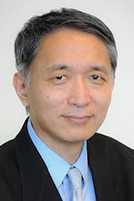
Yongping Zhai
Tencent, ChinaSpecial Advisor of Carbon Neutrality, Tencent. Former Chief of Energy Sector Group, Sustainable Development and Climate Change Department, Asian Development Bank. Dr. Yongping Zhai has been working on energy development in Asia and Africa for 25 years. He was in charge of overall energy policy coordination and technical support to ADB energy sector operations. He is also in charge of developing energy sector knowledge work for ADB and interacts with worldwide energy sector partners.
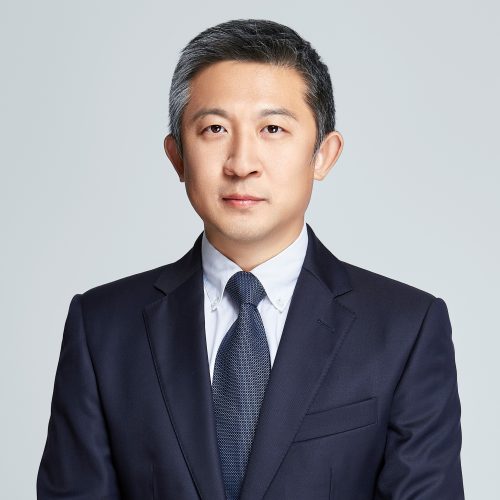
Dayong Zhang
Southwestern University of Finance and Economics, ChinaDayong Zhang is a Professor of Financial Economics at Southwestern University of Finance and Economics (China), the president of the Society for the Studies of Climate Finance (SSCF) in China, vice president of International Society for Energy Transition Studies (ISETS), the co-founder of China Energy Finance Network (currently the ISETS Energy Finance Network). His research interests cover energy finance, climate finance, banking and finance, and general economic and financial issues in emerging economies.
He has published over 100 articles in peer reviewed journals and acted the chief investigator of the National Social Science Foundation of China (NSSFC) Major Project, and principal investigator of over ten research grants from National Natural Science Foundation of China (NSFC) and other sources.
He serves as the chief-editor of Journal of Climate Finance, and the associate editor of: International Review of Financial Analysis (SSCI), International Review of Economics and Finance (SSCI), and Finance Research Letters (SSCI). He is on the Elsevier’s list of China’s Most Cited Scholars between 2020 and 2022, and the Clarivate Highly Cited Researcher (2021-2022).
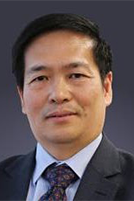
Xiao-Ping Zhang
Birmingham Energy Institute, UKXiao-Ping Zhang is a Professor of Electrical Power Systems, Director of Smart Grid, Birmingham Energy Institute, and Co-Director of Birmingham Energy Storage Centre sponsored by UK, and Head of the Electrical Power & Control Systems Group
Professor Zhang has been conducting active research in the fields of Energy Union, Global Power & Energy Internet, Super Power Grids, Smart Grids, modelling and control of FACTS and HVDC, renewable generation (wind and wave) control, integration of EVs into power grids, energy markets & game theory applications, smart metering, distributed energy management and services for homes and buildings and wide area grid awareness. He has received major grants from UK Government Science City Initiative, FP7 EU Smart Energy Network (Smart Grid) Programme, EPSRC and Industry etc. In 2010, he initiated the UK-China Smart Grid Workshop series, which has led to 13 UK-China joint research projects on smart grid, electric vehicles and energy storage.
Professor Zhang is Chair of the IEEE WG on Test Systems for Economic Analysis and also Secretary of IFAC Technical Committee on Power and Energy Systems Control. He is advisor to the IEEE PES UK & Ireland Chapter. He published the visionary article on Smart Energy Community for Smart Cities in the IEEE Smart City News Letter in 2018.
He is co-founder of the UK-China Strategic Workshop Series on Smart Grid. He has been appointed as a panel member of the International Exchanges Committee of Royal Society since 2018. In recent years, he contributed to two reports on energy for Prime Minister’s Council for Science and Technology and UK Government Science Office.


